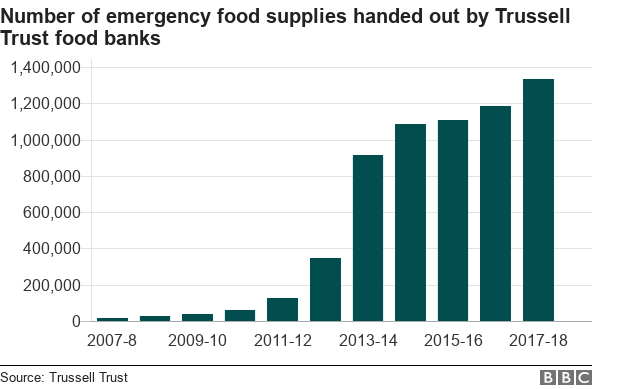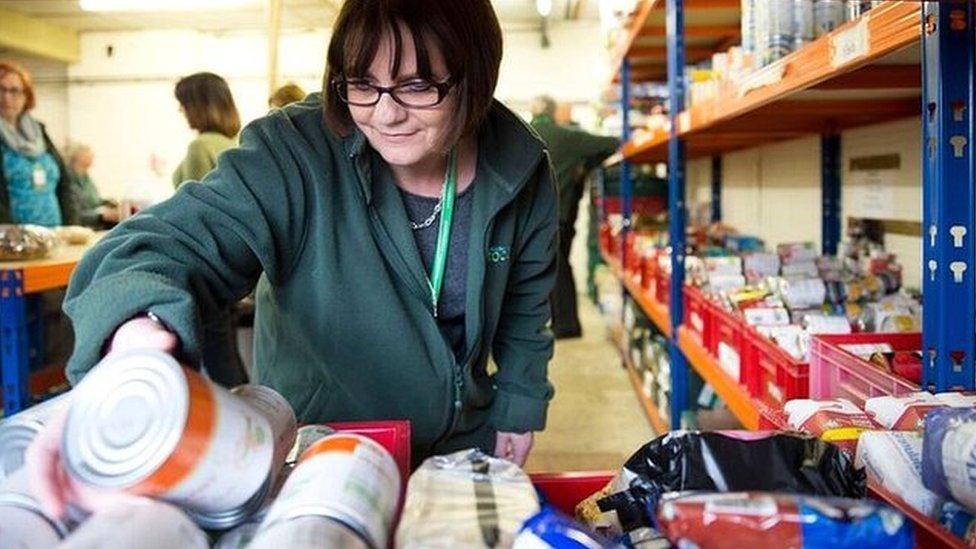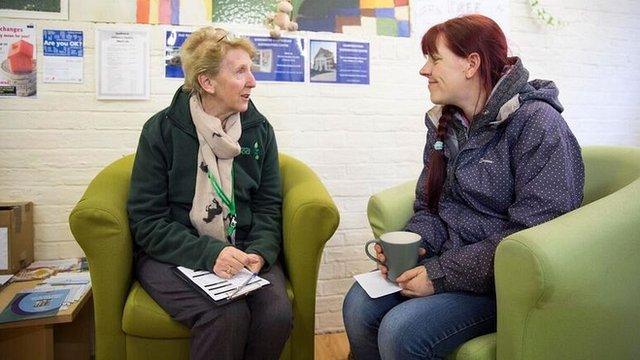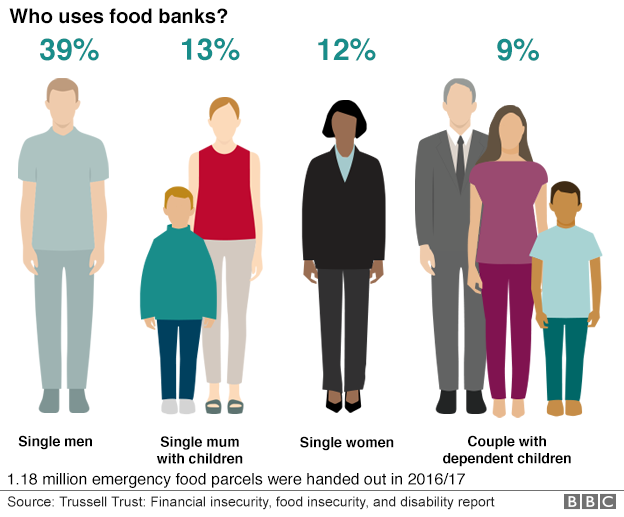Food bank charity gives record level of supplies
- Published
- comments

The biggest network of food banks in the UK says it provided record levels of "emergency food supplies" last year.
The annual figures from the Trussell Trust charity show a 13% increase, providing 1.3 million three-day food packages for "people in crisis".
It warns the increase has been driven by those on benefits not being able to afford basic essentials.
The Department for Work and Pensions says: "The reasons why people use food banks are complex."
'Daily struggle'
But Emma Revie, chief executive of the Trussell Trust, said the rising numbers relying on food banks showed that "for too many people staying above water is a daily struggle".

The Trussell Trust food banks provided 1.3 million packages of three-day supplies of food last year
The latest figures show that the level of food supplies provided by the trust has almost quadrupled in the past five years.
In this year's total of 1.3 million emergency food supplies being delivered, 484,000 were requested for children, says the Trussell Trust, which represents about two-thirds of the food bank provision across the UK.
The charity says the biggest rise has been among those on benefits, whose income has not kept pace with rising costs.

Food banks have warned that people's incomes have not kept up with the rising cost of essentials
Delays in the payment of benefits, including Universal Credit, was another "significant factor".
The charity says debt is an increasing cause of demand for food banks, with people's incomes struggling to keep up with the cost of housing and utility bills.
"As a nation we expect no-one should be left hungry or destitute - illness, disability, family breakdown or the loss of a job could happen to any of us, and we owe it to each other to make sure sufficient financial support is in place when we need it most," said Ms Revie.

Research from University of Oxford last year examined who was most likely to use food banks
The Trussell Trust chief executive said that it was vital that Universal Credit and the benefits system "keep pace with the rising cost of essentials".
A spokeswoman for the Department for Work and Pensions said the rising number of food supplies given by the Trussell Trust was not driven by its introduction of Universal Credit.
The DWP spokeswoman said the link to Universal Credit was "based on anecdotal evidence from a small, self-selecting sample" of Universal Credit claimants, "whereas Universal Credit is working for the vast majority who claim it".
- Published29 June 2017
- Published22 November 2016